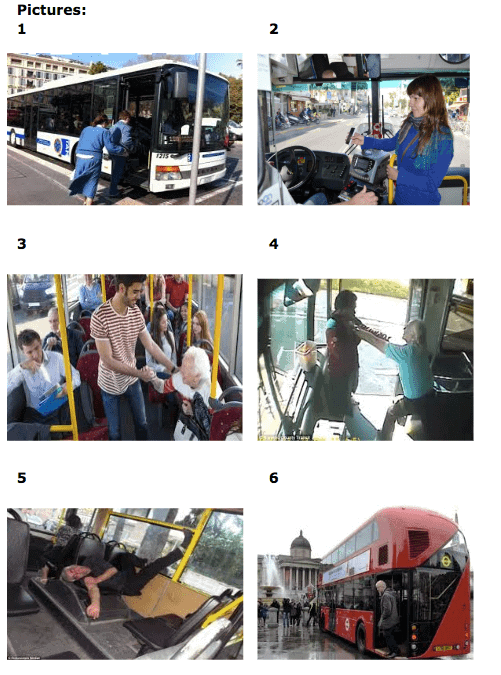Task-based learning approach – situational tasks
A task-based learning approach (TBL), or task-based instruction (TBI), emphasises the use of authentic target language in order for students to complete an assigned task.
As I discussed in this post about teachers’ beliefs in ELT, I have been quite attached to lexis-based teaching since 2011.
Recently, however, I’ve begun to notice the benefits of varying my teaching methods. I’ve become interested in adopting a task-based learning approach because it emphasises communication and fluency over accuracy. This is ideal for me because I want my students to be confident human beings who aren't terrified of mistakes.
I want to get on with describing a specific type of task I've recently implemented with my online students. Therefore, I won’t go over the stages which lessons tend to follow when it concerns a task-based learning approach. Nevertheless, this superb article summarises the stages, and compares a task-based learning approach with PPP.
A TASK-BASED LEARNING ACTIVITY THAT REAPS REWARDS
In recent times, I’ve been trying to combine my usual lexis-based teaching with a more task-based learning approach. Hence, it’s been my goal to come up with some original task-based learning activities.
The first idea that sprang to mind was to think up a real-life situation and get my students to create a story, either imagined or true, about what happened.
Let me take you through the stages of the first situation I came up with:

Language practice:
1. What’s going ___?
2. Are you getting _____ at the next stop?
3. I’ve never seen a driver fight ______ a passenger before
4. There were twenty people in the queue so it took me at least three minutes to get ______ the bus when it stopped
5. Honestly, I always _____ my seat to an elderly person
Story (teacher to type as student speaks):
..........................
Teaching according to a TASK-BASED LEARNING APPROACH
The task-based learning approach I’m trying to implement varies greatly from the methods and stages seen in teaching manuals and methodological textbooks.
First of all, I give my students time to prepare for the task before the lesson. I encourage them to make notes rather than write out their story word-for-word.
Giving students time to prepare at home cuts out the need for introducing pre-task activities and going through the target language that students should include in their stories.
I’m a fast typer, so I’ve been able to write down my students’ stories as they speak almost word for word. Most importantly, I’m able to note down major errors and areas for improvement.
I plan to start voice recording these stories in order to give my students plenty of material to analyse and improve upon.
HOW DID MY STUDENTS HANDLE THIS TASK?
So far, four of my students have attempted this task. Two of them clearly wanted to stick to the rules and used all of the pictures and phrases to create a deeply imaginative story. Their control of the language was very good, though not spectacular.
One student confessed to not having any imagination skills. Therefore, she used the situation to tell a true story about a train journey that she’d had a week before we did the task. I notice that she didn’t use any of the phrases I provided, which was a little frustrating for me.
Finally, one of my Russian students dealt admirably with the task. He used some of the pictures and the majority of the phrases to tell a true story about an eventful bus journey he once had in Cambridge.
Conclusion
It’s difficult to get into my students’ heads and force them to do something in a way that I believe is conducive to efficient learning, the development of fluency and the retention of chunks, such as phrasal verbs.
This task-based learning activity has taught me about the need to trust students. If they adapt the task and do things their own way, then I need to analyse the whole situation and see whether the output they have produced is worth both their and my time. In the case of my Russian student, he exploited the task and his output was exceptionally thoughtful.
I feel that there’s a lot to be gained from a task-based learning approach. I just need to experiment with as many different tasks as possible to see how my students respond to them.



